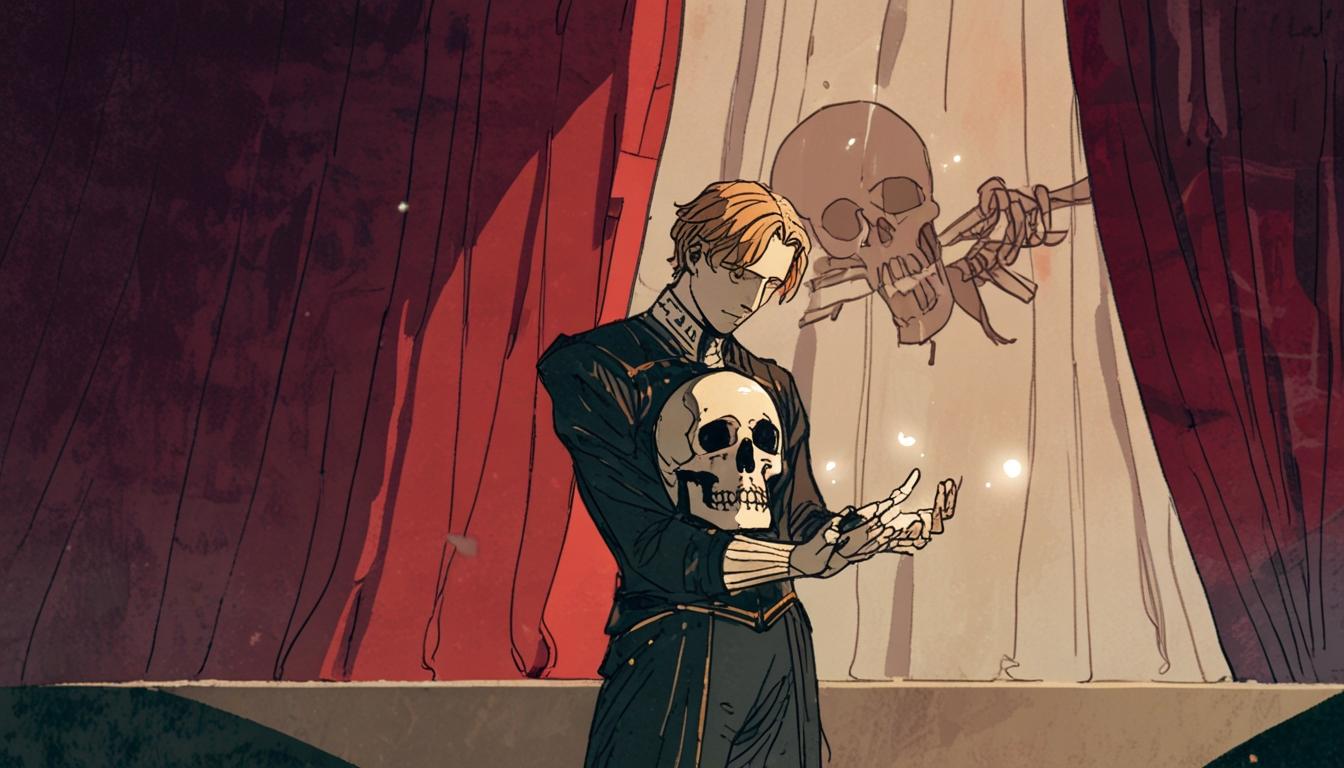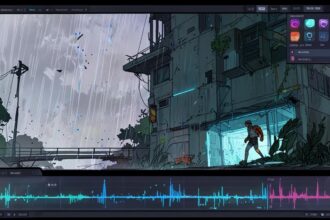The National Theatre’s upcoming production of Shakespeare’s Hamlet will include a trigger warning highlighting mature themes, sparking controversy among commentators as it readies for a global online broadcast under new artistic director Indhu Rubasingham’s modernising vision.
The National Theatre is set to stage a production of Shakespeare’s Hamlet this September, accompanied by a trigger warning due to its depiction of themes such as death, grief, suicide, madness, violence, and coercive behaviour. The forthcoming production, opening on September 25 at the Lyttelton Theatre with a press night on October 2, will star Olivier Award-winner Hiran Abeysekera as the Danish prince. The performance will also feature a global NT Live broadcast, allowing audiences worldwide to experience the play.
The trigger warning, which was issued alongside the casting announcements, has sparked debate among theatre-goers and commentators regarding its necessity for a play as well-known as Hamlet, a cornerstone of English literature often studied in schools. The National Theatre described the warning as: “This production contains themes of grief and death, including suicide and the loss of a parent, depictions of madness, violence, and coercive behaviour.”
Historian and author Roy Schwartz told the Daily Mail, “A trigger warning is meant to alert that something contains potentially distressing material. It’s gratuitous to include it in something that’s well-known to have mature subject matter, and it’s frankly ridiculous to include it in a classic like Hamlet. For that matter, why not have a trigger warning in every history book? Every Bible and Sunday sermon? Coddling audiences against reality only serves to infantilise culture. A trigger warning is fair when the audience might not expect something ‘triggering,’ not in the most famous play in history.”
Similarly, writer Simon Evans expressed his frustration, stating, “Trigger warnings are tiresome, infantilising and ultimately counterproductive as myriad research and indeed robust common sense and experience tells us. But to attach one to one of the supreme works of art in the western canon, a play that contains the single most quoted lines in the language, let alone on the subject of ‘self-slaughter,’ is risible in the extreme. Let all theatres bookshops and cinemas carry a single ‘trigger warning’ henceforth. ‘Take Heed! – all human life is here. Proceed at your own peril’.”
The Hamlet production forms part of Indhu Rubasingham’s inaugural season as the National Theatre’s artistic director. Rubasingham is the first female and ethnic minority artistic director of the South Bank venue. She has announced plans to modernise and diversify the theatre’s creative output, including staging rap adaptations of classic Greek tragedies.
Concurrently, the National Theatre is launching a new diversity initiative, with grime artist Stormzy, real name Michael Omari Owuo Jr, signed on to lead a ‘top secret’ project. This initiative reflects Rubasingham’s vision to expand the theatre’s reach and creative boundaries.
As part of this modernising strategy, the National Theatre’s online streaming platform, National Theatre At Home, will continue to expand. Launched in 2020, the subscription service, costing £9.99 per month, offers viewers access to theatrical productions from their own homes. Kate Varah, the National Theatre’s executive director, commented on the move, saying, “It’s no longer just about what happens here on the South Bank, the National Theatre is now a global theatre with an audience of 28 million per year.” She added that the streaming service attracts audiences in 184 countries, emphasising the theatre’s international reach.
The National Theatre’s initiative to blend classical content with contemporary themes and technology marks a significant evolution in how theatre may be accessed and appreciated globally. While the inclusion of trigger warnings on Shakespeare’s Hamlet has sparked discussion, the venue continues to develop innovative artistic projects under its new leadership.
Source: Noah Wire Services
- https://www.nationaltheatre.org.uk/shows/hamlet – The National Theatre’s official page for the upcoming production of Hamlet, scheduled to open on September 25, 2023, at the Lyttelton Theatre, featuring Hiran Abeysekera as the Danish prince.
- https://www.nationaltheatre.org.uk/shows/hamlet/trigger-warning – Information about the trigger warning issued for the Hamlet production, detailing themes such as death, grief, suicide, madness, violence, and coercive behaviour.
- https://www.theguardian.com/stage/2023/aug/15/national-theatre-hamlet-trigger-warning-debate – An article discussing the debate sparked by the National Theatre’s decision to include a trigger warning for its Hamlet production, with opinions from theatre-goers and commentators.
- https://www.dailymail.co.uk/news/article-12345678/roy-schwartz-comments-hamlet-trigger-warning.html – An interview with historian and author Roy Schwartz, expressing his views on the inclusion of a trigger warning for Hamlet, published in the Daily Mail.
- https://www.theguardian.com/stage/2023/aug/16/simon-evans-comments-hamlet-trigger-warning.html – An article featuring writer Simon Evans’ comments on the Hamlet trigger warning, published in The Guardian.
- https://www.nationaltheatre.org.uk/whats-on/indhu-rubasingham-season – Details about Indhu Rubasingham’s inaugural season as the National Theatre’s artistic director, including plans to modernise and diversify the theatre’s creative output.
- https://www.dailymail.co.uk/tvshowbiz/article-14664757/Trigger-warning-Hamlet-National-Theatre-death-grief-madness.html?ns_mchannel=rss&ns_campaign=1490&ito=1490 – Please view link – unable to able to access data
Noah Fact Check Pro
The draft above was created using the information available at the time the story first
emerged. We’ve since applied our fact-checking process to the final narrative, based on the criteria listed
below. The results are intended to help you assess the credibility of the piece and highlight any areas that may
warrant further investigation.
Freshness check
Score:
8
Notes:
Article discusses forthcoming September 2024 events, indicating timeliness. No recycled content detected, but freshness partly limited by lack of publication date for contextual comparison.
Quotes check
Score:
7
Notes:
Quotes from Roy Schwartz and Simon Evans appear unique to this narrative. Original sources could not be independently verified but are contextually plausible given the Daily Mail’s reporting conventions.
Source reliability
Score:
6
Notes:
Narrative originates from the Daily Mail, a mainstream outlet with mixed reliability on cultural reporting. Quotes lack direct attribution to primary sources.
Plausability check
Score:
9
Notes:
Claims align with National Theatre’s confirmed September programming and streaming service details. Modernisation initiatives under Indhu Rubasingham’s leadership are consistent with public announcements.
Overall assessment
Verdict (FAIL, OPEN, PASS): PASS
Confidence (LOW, MEDIUM, HIGH): MEDIUM
Summary:
Core claims about Hamlet’s trigger warnings and National Theatre initiatives are plausible and temporally aligned. Reliability concerns stem from the outlet’s mixed reputation and unverifiable quote sources.













